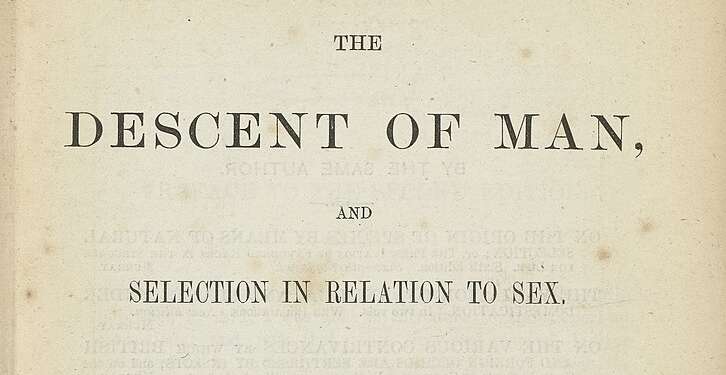
Colorado elected officials rejecting the science of biological evolution by this point has become an embarrassment to the state. On February 1 on the floor of the state house, Rep. Ken DeGraaf called “Darwin’s theory” of evolution, the foundational science of modern biology, “non-science.” With that remark, DeGraaf becomes the third elected official in Colorado, to my knowledge, to publicly reject evolutionary science.
Ironically, later on the same day that DeGraaf called evolution “non-science,” paleontologists from the Denver Museum of Nature and Science answered questions at a screening of a documentary about their research based on fossil discoveries from Corral Bluffs, outside of Colorado Springs. Those fossils, and the findings about them written up by a Denver-led team of international scientists and published in top scientific journals, illuminate the recovery and evolution of life in the first few million years following the asteroid collision of some 66 million years ago, which wiped out the terrestrial dinosaurs.
DeGraaf, a Republican, joins two other elected officials in Colorado in rejecting evolution. At a town hall at which he joined DeGraaf, Rep. Scott Bottoms, also a Republican, called evolution a “big hoax.” District 51 school board member Barbara Evanson, endorsed by various Republicans for her technically nonpartisan race, said “there is no tangible evidence” for biological evolution and called for the teaching of Biblical Creationism in public science classrooms. All three officials vote on measures directly pertaining to the science education of Colorado schoolchildren, most of whom failed to meet expectations in science on last year’s Colorado Measures of Academic Success.
READ MORE: Colorado Rep. Scott Bottoms Rejects Science of Evolution
Bizarrely, DeGraaf raised his objections to evolutionary science in the context of a discussion about a resolution celebrating Black History Month. He said:
“I’m afraid you’re not going to probably like the way this is going, but I think it’s important. I would love to sign on to this resolution, but with an opportunity to address my concerns instead of seeing this resolution late last night, perhaps I could. . . . Here, the focus is on a reference to phenotype, which is a minor physical characteristic. Unlike the consensus non-science of Darwin’s theory, which considers race to be a primary characteristic, with darker skin being indicative of a lower level of evolution. It’s non-science, 100 percent. But it’s taught in our schools and celebrated by many in this room. Also, not all Black Americans are of African descent, and I have friends who feel that their heritage is erased and subsumed by a myopic narrative. This resolution puts slavery rightly in a pejorative context.”
After DeGraaf claimed that Democrats voted for “child slavery . . . to support green energy” and that “sanctuary” policies turn immigrants into “a perpetually vulnerable slave class” (he did not discuss typical Republican attitudes toward immigrants), House Speaker Julie McCluskie urged DeGraaf to “return to the contents of the resolution.”
DeGraaf continued: “I do agree that the history of all Americans, regardless of phenotype, be interwoven, because partial history is not correct history. . . . But our children are forced to endure projects like the 1619 Project because it values narrative over fact. We could, or should, talk about how the first owner of a chattel slave was a free man of African descent.”
After DeGraaf continued in this vein a bit longer, McCluskie interrupted DeGraaf to put the chamber in recess.
The text of the resolution directly addresses DeGraaf’s concerns about its focus: “Even though race, and thus the designations of ‘negro’, ‘Black’, and ‘colored’, has been recognized as a construct originally built to separate and disenfranchise people based on skin color that was associated with people originating from the African continent, there is a shared culture derived from that history that should be seen and elevated. . . . Black History Month celebrates the rich cultural heritage, impact, and triumphs of, and acknowledges the adversities faced as a part of, the African diaspora in the United States.”
The resolution goes on to celebrate various Black heroes of Colorado’s history, including Barney Ford, Clara Brown, Justina Ford, Joseph H. Stuart, and Henry O. Wagoner.
The record shows that the resolution passed with near unanimity, with DeGraaf the only “no” vote (and with four legislators excused).
For purposes of this article, I will bracket further discussion of Black History Month and of DeGraaf’s remarks about slavery (perhaps others will care to discuss those matters in richer detail). I will only briefly add two details. As James O’Rourke reported, in the context of discussion about a bill that recognizes rights for LGBTQ children in foster care, DeGraaf on social media smeared some Democrats as “pedophilic.” On the other hand, DeGraaf was a lead sponsor of a bill restricting civil asset forfeiture, a bill I regard as an important civil-rights measure. For the remainder of this article I want to focus specifically on DeGraaf’s remarks about evolutionary science.
The grain of truth in DeGraaf’s statement is that Darwin did, in fact, write some horribly racist things in his Descent of Man. For example, Darwin contrasts “the dark coloured races of men” with “the white and civilised races,” and he refers to the allegedly “uncivilized races” as “savages” scores of times. Further, as I have pointed out, many people a century ago, including various leaders of medicine and science in Colorado, proclaimed that evolutionary science supported eugenics. In 2021, the Denver Museum of Nature and Science faced the embarrassing discovery that its first director was a member of the Ku Klux Klan.
We do need to ask, then, whether racism is inherent in evolutionary science or in conflict with it.
We should first notice that Darwin’s On the Origin of Species came out in 1859, while his Descent of Man came out in 1871. So was it the case that the world was a perfectly bigotry-free place up until the publication of Darwin’s theory, at which point it became horribly racist? Obviously not. Britain finally abolished slavery in its territories in 1833. Although DeGraaf can debate the particulars of the 1619 Project, that date plausibly marks the beginning of chattel slavery in the American colonies. Black slavery became deeply entrenched in the South until the Civil War and the Thirteenth Amendment.
It was not the case, then, that Darwin’s theories made the world racist. Rather, the world was horribly racist prior to Darwin’s discovery of biological evolution, and Darwin shoehorned his own preexisting racist views into some of his works on evolution.
DeGraaf wrongly suggests that today’s evolutionary biologists embrace Darwin’s racism. Instead, they separate out the scientific grain from Darwin’s racist chaff. Indeed, evolutionary science is fundamentally anti-racist, in that it recognizes that people everywhere are closely related as members of the same species who share common ancestors who lived only a few thousand years ago, a mere blip in the scope of geologic time.
Writing for Science of Darwin’s 1871 book, the anthropologist Agustín Fuentes notes, “Some conclusions were innovative and insightful. His recognition that differences between humans and other animals were of degree, not of kind, was trailblazing. His focus on cooperation, social learning, and cumulative culture remains core to human evolutionary studies. However, some of Darwin’s other assertions were dismally, and dangerously, wrong. ‘Descent’ is a text from which to learn, but not to venerate.”
Fuentes continues: “‘Descent’ is often problematic, prejudiced, and injurious. Darwin thought he was relying on data, objectivity, and scientific thinking in describing human evolutionary outcomes. But for much of the book, he was not. ‘Descent,’ like so many of the scientific tomes of Darwin’s day, offers a racist and sexist view of humanity.”
Fuentes notes that Darwin’s racism clashes with his “robust stance against slavery.” Darwin, like many historical figures, was complicated and often hypocritical.
Science is not a practice of venerating particular ideas of particular figures; rather, it is a process of continuous challenge, discovery, and refinement. Darwin is the most important person to initially discover biological evolution—he is hardly the only important figure of that time—but Darwin did not get everything right, and the science of evolution has advanced profoundly since Darwin’s time with the development of genetics, the discovery of millions of additional fossils, and the advance of technologies such as used in imaging. Science by its nature does not stand still or rest content with old prejudices.
DeGraaf should be sensitive to the problem of separating a set of ideas from the foibles of individuals. The KKK in Colorado of the early 1900s, for example, was a self-consciously Protestant movement. The Apostle Paul writes, “Slaves, obey your earthly masters with respect and fear,” a passage that many Southern slaveholders embraced to rationalize their moral crimes. Yet I doubt that DeGraaf would want to say that racism and slavery are core aspects of Christianity. On his web site, DeGraaf writes, “Our Founding Fathers knew what they were doing.” But many of the Founders, including Jefferson, whom DeGraaf quotes admiringly, owned slaves. In the case of Darwin no less than in the case of America’s Founders, we can and should recognize that a person’s worst prejudices need not indict the person’s best ideals.
Looking again at DeGraaf’s remarks about the “non-science of Darwin’s theory,” one might wonder whether he really intended to indict evolutionary biology as such. He did. I asked DeGraaf, “Do you think biological evolution explains the development of life on earth?” DeGraaf replied, “‘Science’ is observable, measurable, repeatable, and falsifiable. Increasing complexity through random mutations is contrary to the first three [principles] and circular reasoning violates (we know it happened because it did) the fourth.”
DeGraaf thereby demonstrates a basic ignorance of evolution and of how the principles of science apply to it. No evolutionary biologist thinks that random mutations alone drive evolution. Rather, mutations play a role in the context of genes that living things pass on overwhelmingly because they contribute to an organism’s fitness.
Scientists have observed and measured mountains of facts that support evolution. They have collected literally millions of fossils and carefully studied many of them, studied modern plants and animals, observed facts about genes, studied details about the geologic record, and so on.
The science is repeatable in the relevant sense that different scientists can look at the same records of fossils and geology, explore the world for new evidence, independently look at genetic lineages and sequences, and bring newly discovered facts and methods to bear. No, scientists cannot “repeat” historical aspects of evolution in a lab by, say, turning a primitive theropod into a modern bird. (However, to a degree scientists have reverse-engineered evolution by observing mutant chickens with teeth.) But DeGraaf simply misunderstands what the standard of repeatability means in this context. By his standards, there can be no science of geology, because scientists have not “repeated” the Rocky Mountains or the Grand Canyon in a lab. There can be no science of astrophysics, because scientists cannot “repeat” the creation of a star in a lab. (That said, scientists have generated nuclear fusion.) But that’s just not what repeatability means or requires here.
Obviously evolution is potentially falsifiable in the relevant sense. For example, if someone found a fossilized skeleton of a modern human from the Jurassic era, that would provide strong evidence against the theory. DeGraaf can point to no such specimen, because no such specimen exists.
Instead, DeGraaf invoked laughably weak “evidence” to try to poke holes in evolution. He said, “If man did not coexist with the animals to which we refer as dinosaurs, there were certainly some creative carvers that knew what they looked like before we did. Consider also the math of unearthing a 65 million year old dinosaur, just a few feet underground, given an average erosion rate of two inches per 1000 years.” Such silly claims prove only that DeGraaf has allowed himself to be fooled by hucksters.
The Denver Museum of Nature and Science is three miles from the State Capitol where DeGraaf works. The Denver Public Library is less than a mile from the capitol. DeGraaf easily could learn the basics of biological evolution if he wanted. He remains ignorant by choice.
Elected officials such as DeGraaf, Bottoms, and Evanson who display gleeful ignorance of basic science are poor role models for Colorado’s students, and they are badly equipped to sensibly contribute to policy discussions pertaining to education and myriad other issues.
Ari Armstrong writes for AriArmstrong.com. He is a columnist for the conservative-libertarian Complete Colorado, and he is the author of Getting Over Jesus: Finding Meaning and Morals without God.




